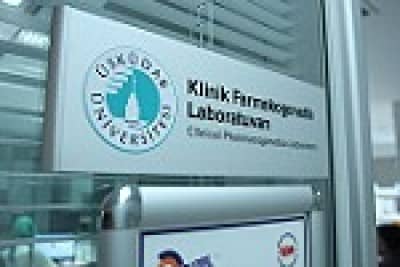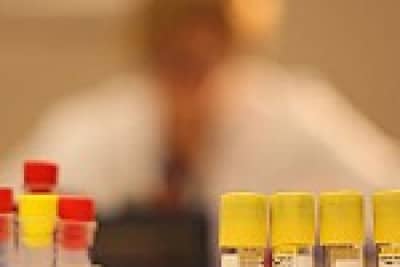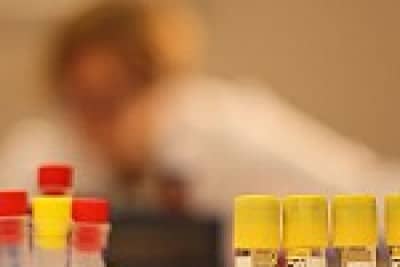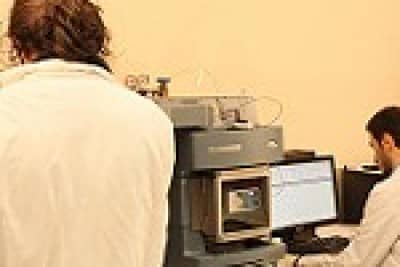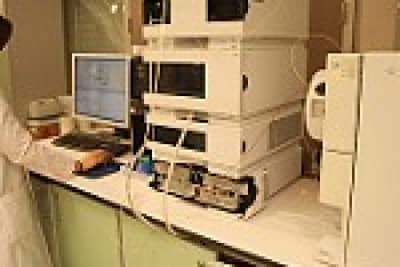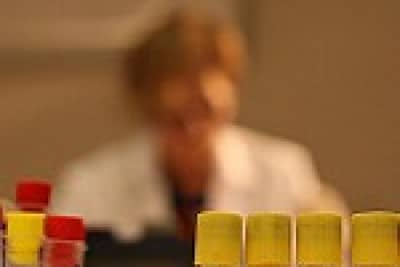- E-Magazine
Üsküdar University, Medical Genetics and Molecular Diagnosis Laboratory conducts genotyping studies to determine the pharmacogenetic profiles of individuals. Our laboratory has been designed in accordance with the studies to be carried out at the molecular level and a Medical Genetics and Molecular Diagnosis laboratory with the necessary machinery and equipment has been established.
Contents
In our laboratory, DNA/RNA isolation is performed from blood or any tissue sample taken from patients for genotyping. These samples can then be used for genotyping or determination of expression levels. For genotyping studies, conventional PCR (polymerase chain reaction, PCR), restriction enzyme restriction fragment analysis (RFLP) and sequence analysis studies are carried out. In addition, more sensitive analyzes are performed with Real-time PCR in our laboratory.
Genotyping studies complement phenotypic studies in some cases and lead them in others. By ensuring genotype-phenotype correlation, patients receive a more effective treatment program in a shorter time and with minimized side effects. Genotypic analysis of CYP2D6, CYP2C9, CYP2C19, CYP1A2 and CYP3A4 groups, 5HTT and COMT polymorphism are the main genotyped genes.
What does the Clinical Pharmacogenetics Laboratory do?
Pharmacogenetics within the scope of 'Personalized Treatment' examines the changes in people's responses to drugs due to variations in their genetic structure. Differences in genetic structures that are involved in the metabolism of drugs or are active in the functioning of the mechanism can affect the usefulness and/or harmful effects of the drug in some people. Today, some genetic tests can detect unnecessary drugs or drugs with high side effects in advance.
What is Pharmacogenetic Testing?
Pharmacogenetic tests are genetic tests that help predict the effects of drugs on the body and develop personalized treatments by examining the genetic structure of individuals. These tests aim to identify specific genetic variations associated with the metabolism, mechanism of action and side effects of drugs. Pharmacogenetic testing can help determine the most effective and safest treatment for the patient and can help minimize side effects. Today, two main methods are used in the treatment of diseases:
- Trial and error method: The drug is administered until it takes effect.
- Protocol Method: First the diagnosis is made. Drugs are given according to the decision scheme in the protocol.
Pharmacogenetic studies have two main applications in the clinic:
- Evaluation of Response to Drugs: It is determined which patients will respond well to certain drugs and who will not. In this way, effective treatment processes are personalized.
- Prevention of Side Effects: Patients in whom medicines may cause side effects are identified in advance. This reduces the risk of side effects and increases the safety of medicines.
Laboratory tests are used for these purposes. Therapeutic drug blood level monitoring (TDM) monitors the effects of drugs and determines genetic profiles. Phenotyping is also performed using "probe drugs". The science of pharmacogenetics predicts drug responses, interactions and side effects according to the genetic structure of patients and contributes to the development of a personalized treatment approach.
In our country, drug blood level measurements are limited and performed by non-specific methods. However, pharmacogenetics aims to improve the efficacy and safety of drug therapy by developing a personalized treatment approach. Advances in this field can contribute to better management of diseases and improve response to treatment.
For What Purposes Are Pharmacogenetic Tests Used?
Pharmacogenetic tests are genetic tests that help predict the effects of drugs on the body and develop personalized treatments by examining the genetic makeup of individuals. These tests are used for the following purposes:
Predicting Drug Response: Pharmacogenetic tests help determine whether a drug is appropriate for a person's genetic profile. Drugs may work differently in each individual and these tests can help predict how a drug will respond to a person's disease.
Adjusting Drug Dosage: Genetic differences between individuals can have an impact on the metabolism of medicines. Pharmacogenetic testing can be critical in determining the appropriate dose of a drug. Adjusting the dosage according to the individual's genetic profile can improve treatment efficacy and reduce side effects.
Reducing Side Effects: Side effects of some medicines can occur due to genetic variations in individuals. Pharmacogenetic testing can predict which side effects are at risk and help make treatment safer.
Examination of Treatment Resistance Cases: Some patients may be resistant to certain medicines. Pharmacogenetic testing can help identify the cause of this resistance and alternative treatment options can be suggested.
Evaluation of Drug Interactions: Pharmacogenetic testing can help assess how multiple drugs used at the same time will interact in the body. This is important for the safety and effectiveness of drug combinations.
Drug Development and Drug Selection: Pharmacogenetic studies are used in drug development processes and to determine whether new drugs are suitable for patients with specific genetic profiles. This can help design more targeted therapies.
Booklet: Personalized Treatment
| TDM MOLECULE LIST | |||||
| S.No | Active Ingredient | Drug Half-Life (t 1/2)(Hour-Day) | Therapeutic Interval | Alarm Level | Recommended Drug Use Sequence for TDM |
| 1. | Alprazolam | 12-15 hours | 20-40 | 100 ng/ml | 3 |
| 2. | Acomprosate | 3-33 hours | 250-700 | 1000 ng/ml | 3 |
| 3. | Amisulpiride | 12-20 hours | 100-320 | 640 ng/ml | 1 |
| 4. | Amitriptyline + Nortriptyline | 10-28 hours + 18-44 hours | 80-200 | 300 ng/ml | 1 |
| 5. | Aripiprazole | 60-80 hours | 100-350 | 1 000 ng/ml | 2 |
| 6. | Asenapine | 13-39 hours | 1-5 | 10 ng/ml | 4 |
| 7. | Atomoxetine | 2-5 hours | 200-1000 | 2 000 ng/ml | 3 |
| 8. | Bupropion + Hydroxybupropion | 1-15 hours + 17-47 hours | 850-1500 | 2 000 ng/ml | 2 |
| 9. | Buspirone | 1-5 hours | 1-4 | 30 ng/ml | 3 |
| 10. | Carbamazepine | 10-20 hours | 4-12 | 20 µg/ml | 1 |
| 11. | Carbamazepine 10-11Epoxide | - | 0.4-4 | 4 µg/ml | - |
| 12. | Chlorpromazine | 15-30 hours | 30-300 | 600 ng/ml | 2 |
| 13. | Citolopram | 38-48 hours | 50-110 | 220 ng/ml | 1 |
| 14. | Clomipramine | 16-60 hours | 230-450 | 450 ng/ml | 1 |
| 15. | Clonazepam | 19-40 hours | 4-80 | 100 ng/ml | 3 |
| 16. | Clozapine+Norclozapine | 12-16 hours | 350-600 | 1 000 ng/ml | 1 |
| 17. | DDTC_ME ( Disulfiram Diethylthiomethylcarbamate-methyl ester ) | 6-9 hours | 270-310 | 500 ng/mL | 3 |
| 18. | Diazepam | 24-48 hours | 100-2500 | 3000 ng/ml | 4 |
| 19. | Donepezil | 70-80 hours | 50-75 | 75 ng/ml | 2 |
| 20. | Duloxetine | 9-19 hours | 30-120 | 240 ng/ml | 2 |
| 21. | Escitalopram | 27-32 hours | 15-80 | 160 ng/ml | 2 |
| 22. | Fluoxetine | 4-6 days | 120-500 | 1 000 ng/ml | 3 |
| 23. | Flupentixol | 20-40 hours | 0.5-5 | 15 ng/ml | 2 |
| 24. | Fluphenazine | 16 hours | 1-10 | 15 ng/ml | 1 |
| 25. | Fluvoxamine | 21-43 hours | 60-230 | 500 ng/mL | 2 |
| 26. | Gabapentine | 5-7 hours | 2-20 | 25 µg/ml | 3 |
| 27. | Haloperidol | 12-36 hours | 1-10 | 15 ng/ml | 1 |
| 28. | Imipramine + Desimipramine | 11-25 hours + 15-18 hours | 175-300 | 300 ng/ml | 1 |
| 29. | Lacosamide | 10-15 hours | 1-10 | 20 µg/ml | 3 |
| 30. | Lamotrigine | 14-104 hours | 1-15 | 20 µg/ml | 2 |
| 31. | Levetiracetam | 6-8 hours | 20-40 | 50 µg/ml | 4 |
| 32. | Lorazepam | 12-16 hours | 30-100 | 300 ng/ml | 4 |
| 33. | Maprotiline | 20-58 hours | 75-130 | 220 ng/ml | 2 |
| 34. | Memantine | 60-100 hours | 90-150 | 300 ng/ml | 3 |
| 35. | Metformin | 6.2 hours | 1-2 | 5 µg/ml | - |
| 36. | Methylphenidate | 2 hours | 6-26 | 50 ng/ml | 3 |
| 37. | Mianserine | 14-33 hours | 15-70 | 140 ng/ml | 3 |
| 38. | Milnacipran | 5-8 hours | 100-150 | 300 ng/ml | 2 |
| 39. | Mirtazapine | 20-40 hours | 30-80 | 160 ng/ml | 2 |
| 40. | Moclobemide | 2-7 hours | 300-1000 | 2 000 ng/ml | 3 |
| 41. | Modafinil | 10-12 hours | 100-1700 | 3 400 ng/ml | 3 |
| 42. | Naltrexone + 6β-naltrexol | 2-5 hours + 7-13 hours | 25-100 | 200 ng/ml | 2 |
| 43. | Olanzapine | 30-60 hours | 20-80 | 100 ng/ml | 1 |
| 44. | Opipramol | 11 hours | 50-500 | 1000 ng/ml | 3 |
| 45. | Oxcarbamazepine (Oxcarbazepine 10-hydroxycarbazepine) | 10-20 hours | 10-35 | 40 µg/ml | 2 |
| 46. | Paliperidone (9-hydroxyrisperidone) | 17-23 hours | 20-60 | 120 ng/ml | 2 |
| 47. | Paroxetine | 12-44 hours | 20-65 | 120 ng/ml | 3 |
| 48. | Pimozide | 23-43 hours | 15-20 | 20 ng/ml | 3 |
| 49. | Pramipexole | 8-12 hours | 0.4-1.2 | 15 ng/ml | 3 |
| 50. | Pregabaline | 5-7 hours | 2-5 | 10 µg/ml | 3 |
| 51. | Quetiapine | 6-13 hours | 100-500 | 1 000 ng/ml | 2 |
| 52. | Reboxetine | 13-30 hours | 60-350 | 700 ng/ml | 3 |
| 53. | Risperidone + 9-hydroxy-risperidone | 2-4 hours + 17-23 hours | 20-60 | 120 ng/ml | 2 |
| 54. | Rivastigmine | 1-2 hours | 8-20 | 40 ng/ml | 3 |
| 55. | Sertindole | 55-90 hours | 50-100 | 200 ng/ml | 2 |
| 56. | Sertraline | 22-36 hours | 10-150 | 300 ng/ml | 2 |
| 57. | Sulpiride | 8-14 hours | 200-1000 | 1 000 ng/ml | 2 |
| 58. | Tianeptine | 2.5-3 hours | 30-80 | 160 ng/ml | 3 |
| 59. | Topiramate | 19-23 hours | 2-10 | 16 µg/ml | 3 |
| 60. | Trazodone | 4-11 hours | 700-1000 | 1 200 ng/ml | 2 |
| 61. | Trifluoperazine | - | 1-2.3 | - | - |
| 62. | Venlafaxine + O-desmethylvenlafaxine (ODV) | 14-18 hours + 10-17 hours | 100-400 | 800 ng/ml | 2 |
| 63. | Valproic acid | 17-30 hours | 50-100 | 120 µg/ml | 1 |
| 64. | Vortioxetine | 57-66 hours | 10-40 | 80 ng/ml | 2 |
| 65. | Ziprasidone | 4-8 hours | 50-200 | 400 ng/ml | 2 |
| 66. | Zolpidem | 1-4 hours | 80-160 | 320 ng/ml | 4 |
| 67. | Zuclopenthixol | 15-25 hours | 4-50 | 100 ng/ml | 3 |



